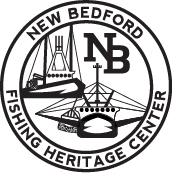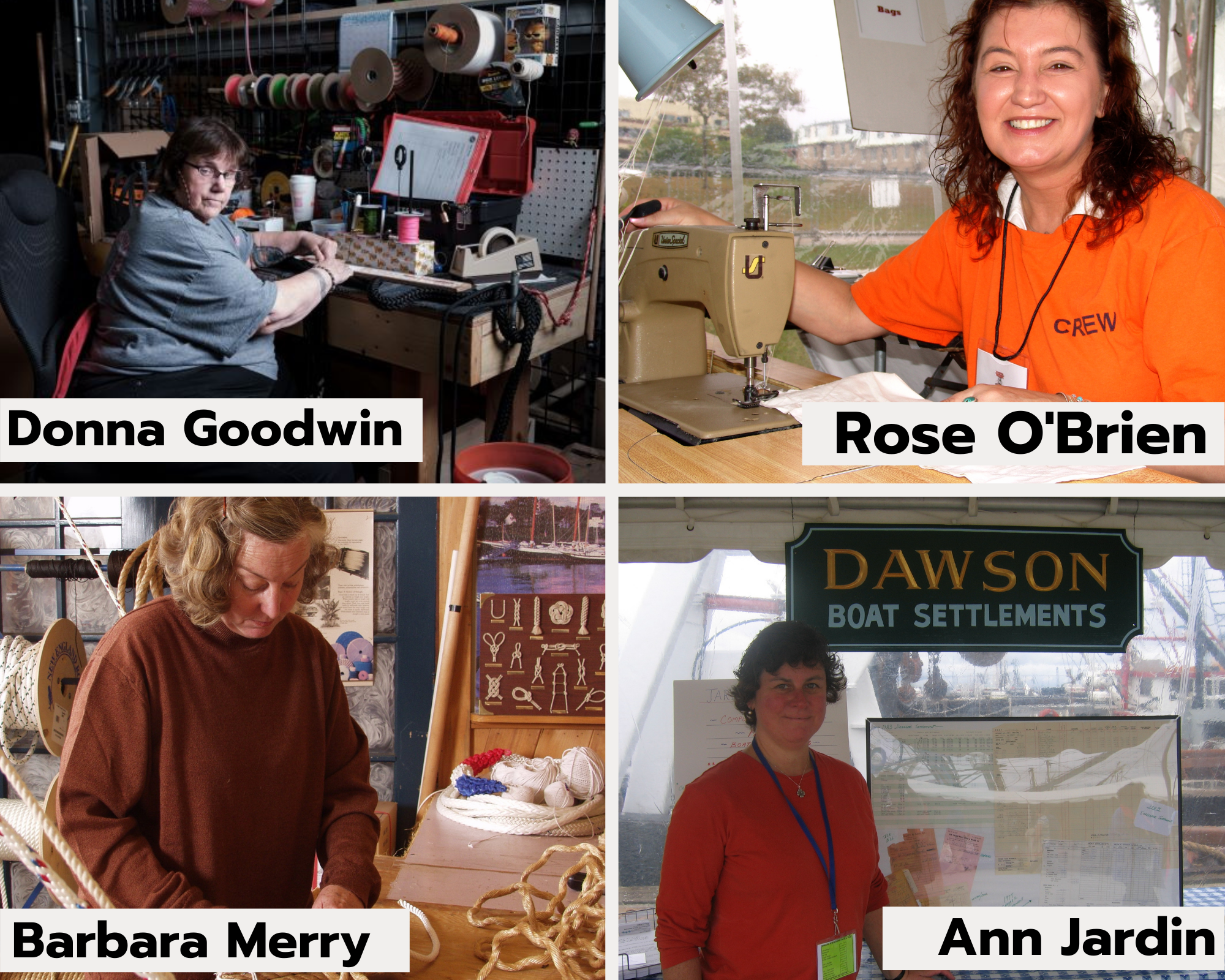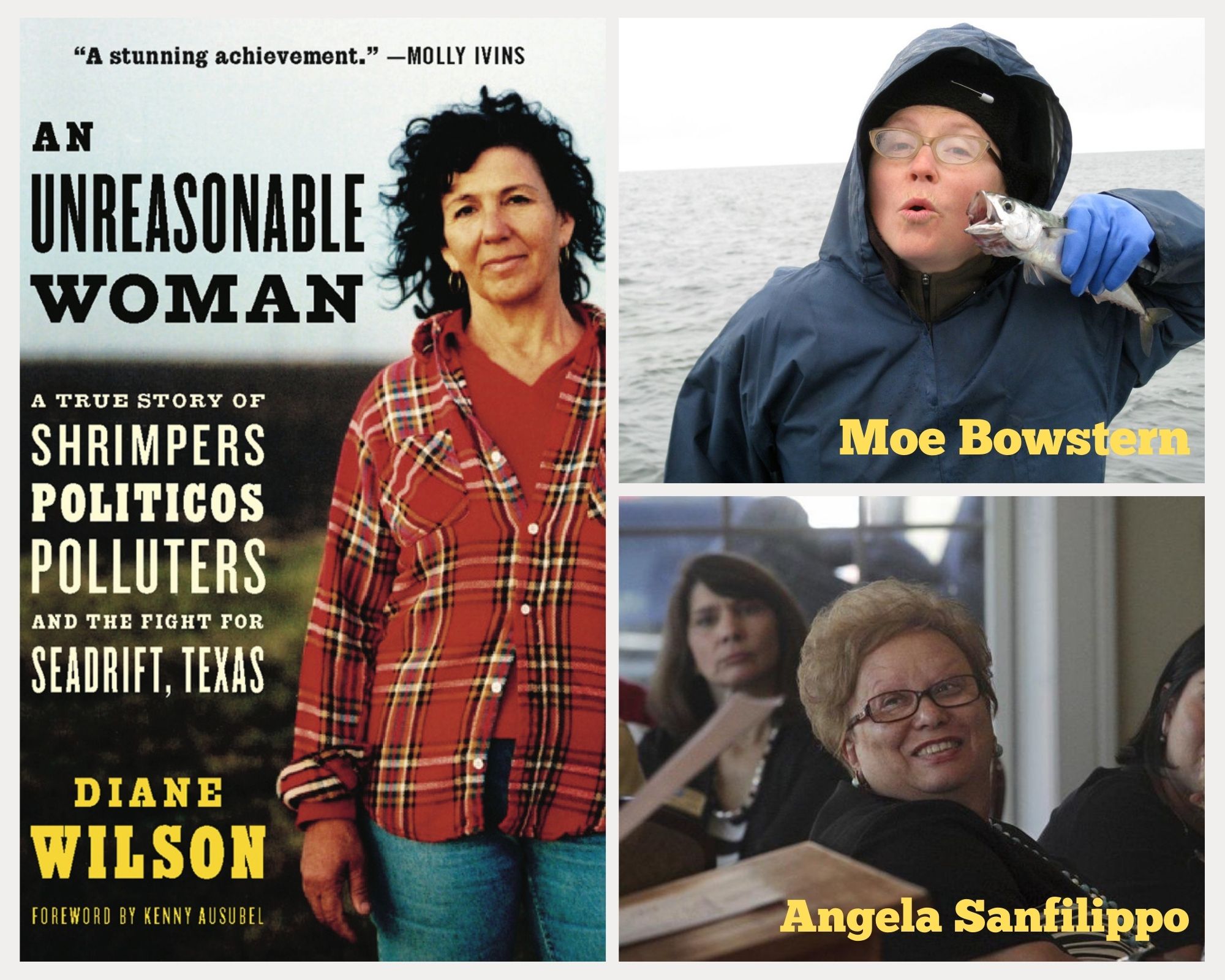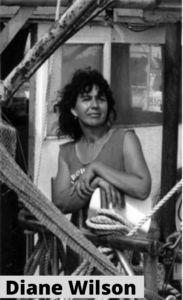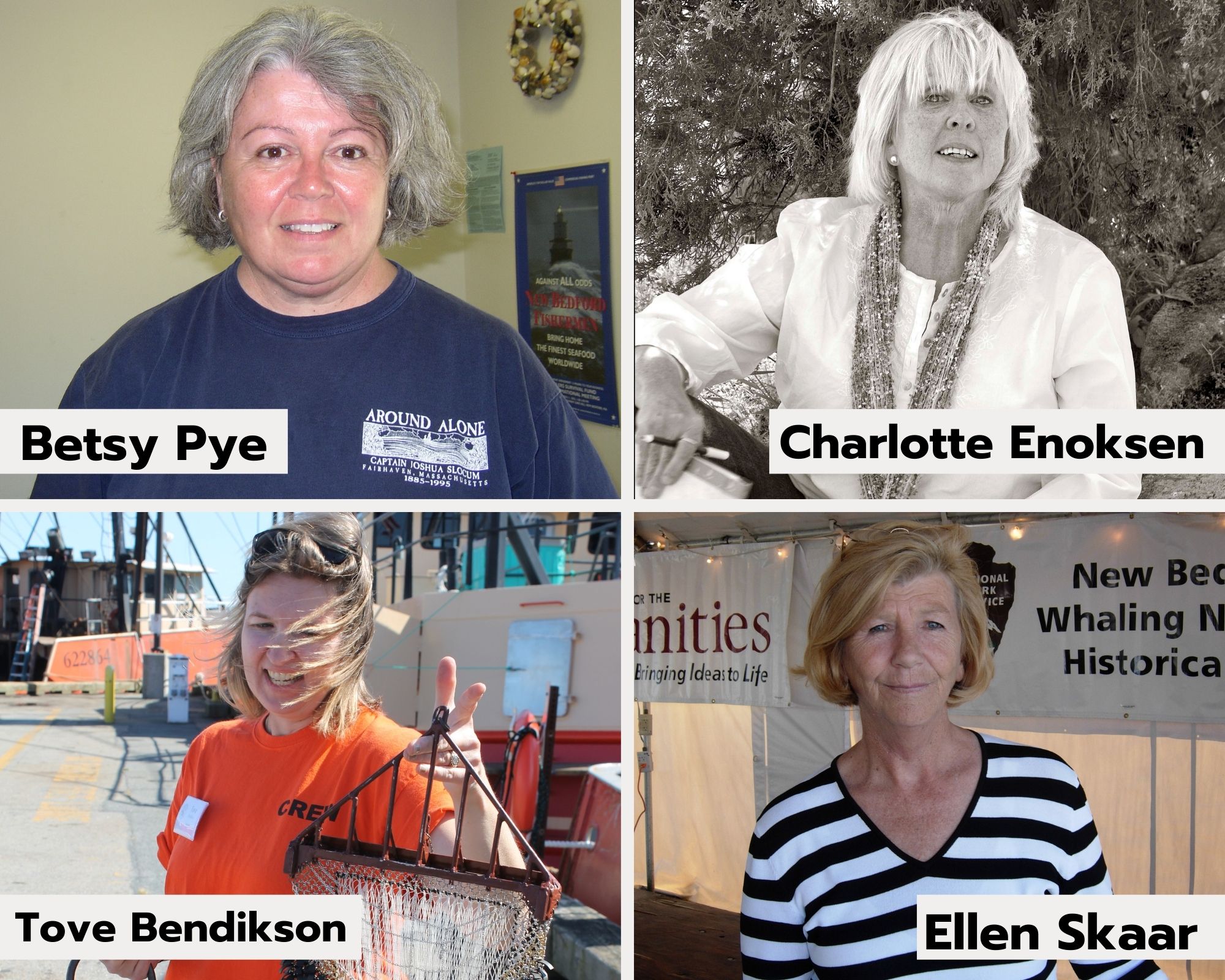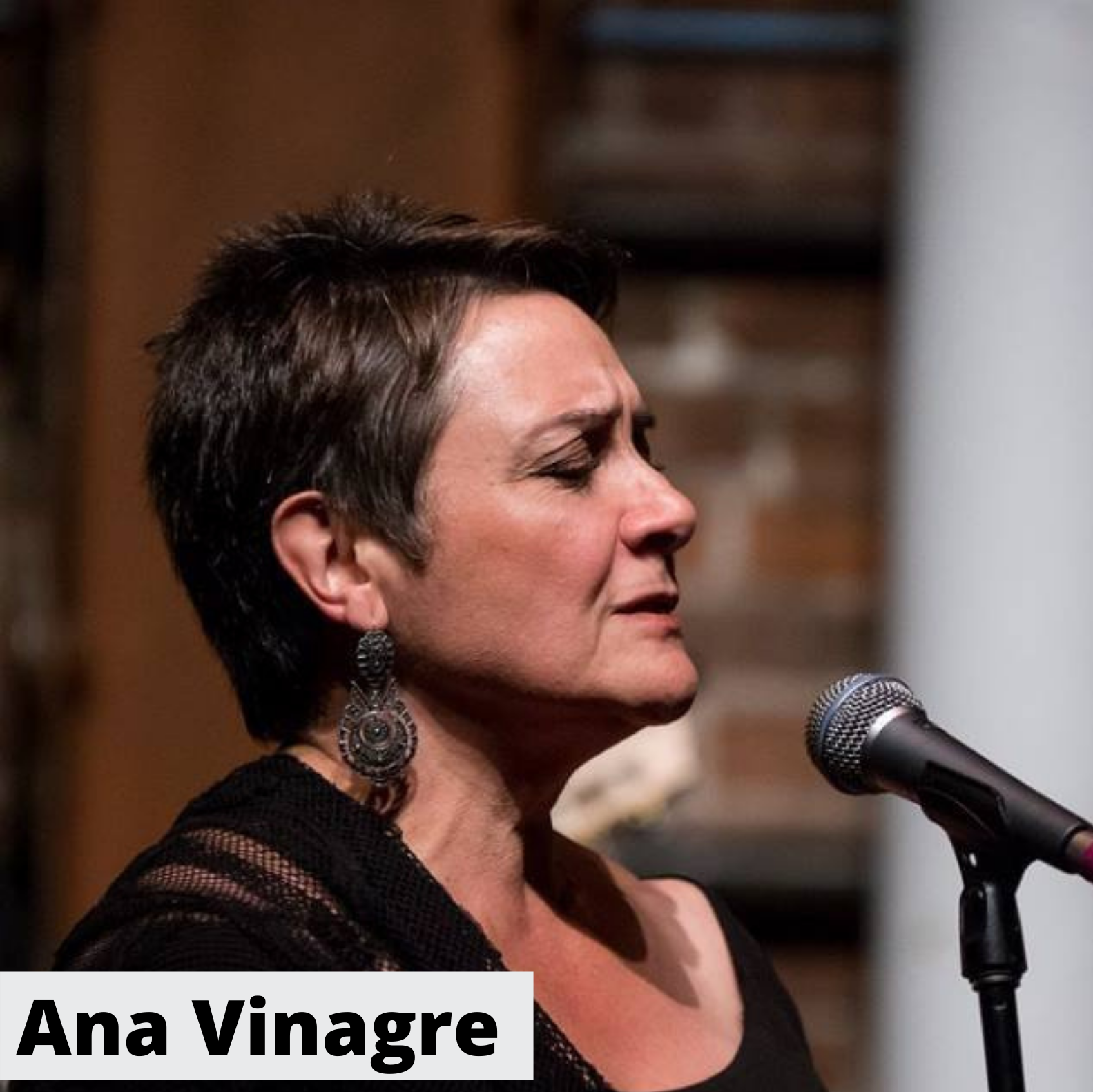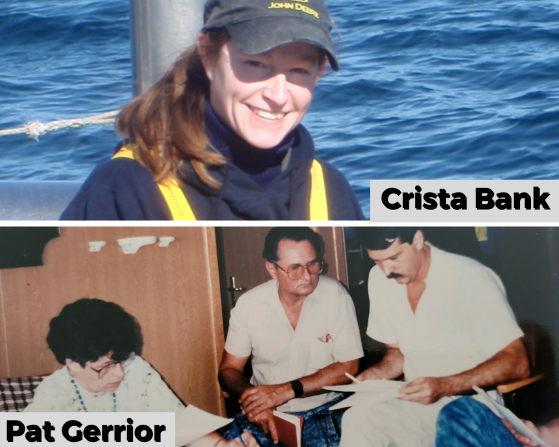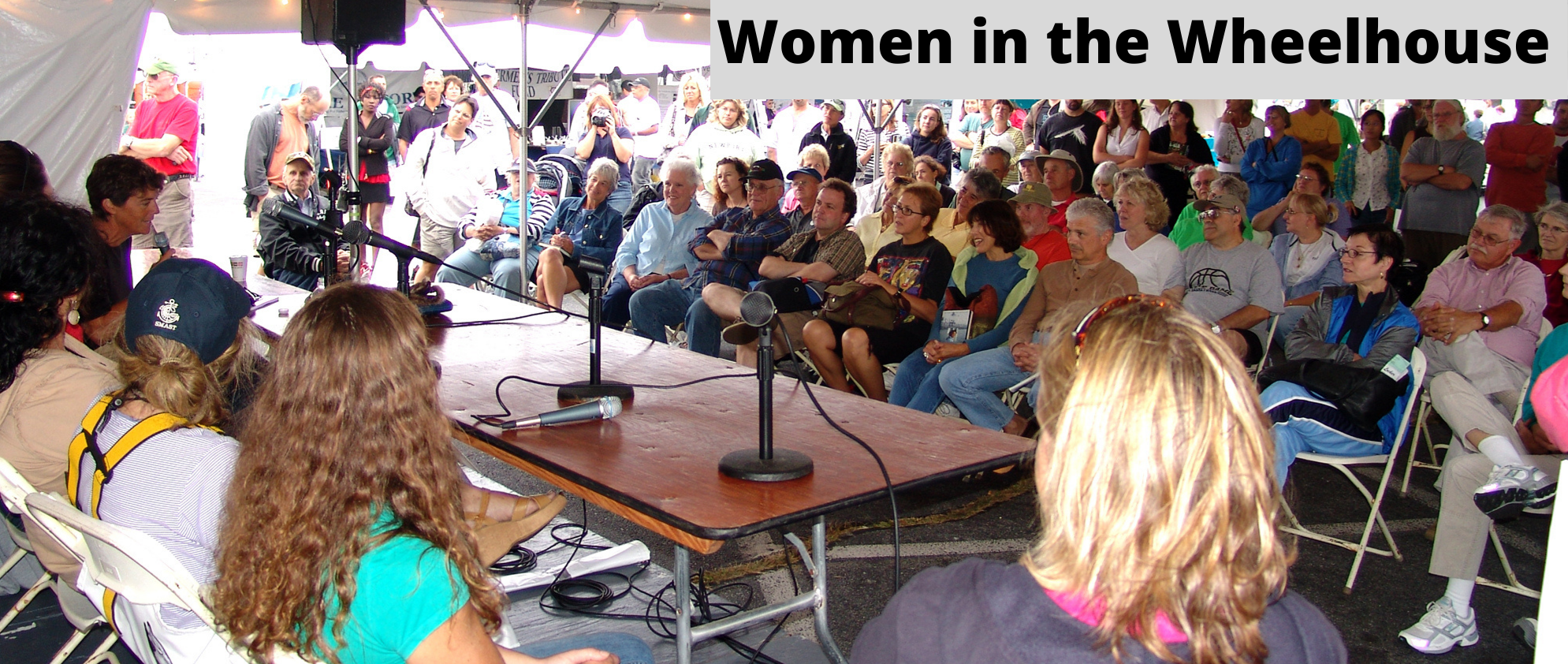Media
Fisherpoetry and Song
A surprising number of fishermen chronicle their lives and experiences in poetry and prose, much of it is showcased at the annual Fisherpoets Gathering in Astoria, Oregon. Their work runs the gamut from poignant word pictures to hilarious parodies, but is always delivered with wisdom and authenticity. There are also many traditional and original songs that speak to the experiences of women’s work.
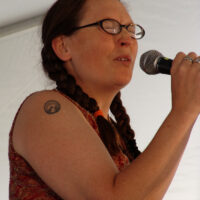
Moe Bowstern has commercially fished salmon, halibut, herring, cod, shad, shrimp and tanner crab, mostly around Kodiak, Alaska. She has been the editor since 1996 of Xtra Tuf, a zine that chronicles the experiences and adventures of commercial fisher folk in Alaska and beyond.
Photo provided by New Bedford Fishing Heritage Center
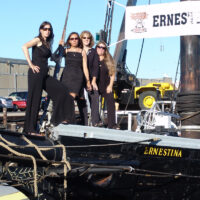
The Johnson Girls is an all-woman a cappella ensemble, performing traditional and contemporary music with an emphasis on songs of the sea and shore.
Photo by Dan Orchard
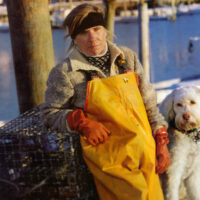
Amanda Wright fished for over 30 years from Provincetown to Alaska. She began shucking scallops as a way to supplement her income as a potter. She began writing poetry in 2006 after traveling to the Fisherpoets Gathering in Astoria, Oregon.
Photo provided by Amanda Wright
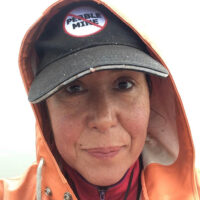
Melanie Brown fishes for sockeye salmon in the Naknek River District of Bristol Bay, Alaska with her kids on the set-net site that her Great Grandfather, Paul Chukan, staked out. She winters in Juneau, AK and advocates for salmon and wild salmon habitat with the group SalmonState.
Photo provided by Melanie Brown
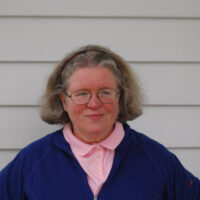
Mary Garvey is one of the Northwest’s most acclaimed and prolific songwriters. She has worked in fisheries research in Newfoundland and Washington State.
Photo provided by Mary Garvey
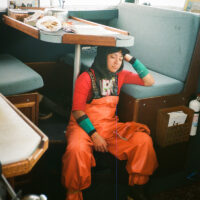
Alana Kansaku-Sarmiento was raised in Hawaii, and now lives in Oregon and Alaska. She lives in Portland most of the year, and travels to Bristol Bay during the summer to gillnet for salmon.
Photo provided by Alana Kansaku-Sarmiento
Fisheries Science
This recording was taken from the November 11, 2021 lecture titled “Fisheries Science: Then and Now” in which five women involved with the field of fisheries science came together to discuss their experiences. Two seasoned scientists, Pat Gerrior and Linda Despres, were able to ask current SMAST grad students Aubrey Ellertson Church, Alison Frey, and Patricia Perez about what’s happening now in the field, and the three students asked many questions about what happened in the past. Many thanks to all our panelists!
If you want to hear more about Linda Despres, click here for an article by NOAA profiling her story!
Fishing in Northumberland
“Can She Bait a Line?” explores the unsung heroines of Northeast England’s fishing communities, especially focusing on the years before WWII. A historian and poet, Katrina Porteous has documented the lives of fishermen and women on the Northumberland coast.
em>Correction for 17:30-17:50: Robert Jobling was among a group of artists painting Cullercoats, and he moved there in 1881. Isa Thompson lived and worked nearby in the 1880s. The two artists married in 1893.
This program was part of Women’s Work, a year-long series supported by the National Endowment for the Arts, the Women’s Fisheries Network, the Mass Cultural Council, Dartmouth, Fairhaven, Marion, Mattapoisett, New Bedford, and Westport Cultural Councils and the Women’s Fund SouthCoast.
>Katrina Porteous was born in Aberdeen, Scotland, studied History at Cambridge, and has lived on the Northumberland coast for over 30 years, recording the lives of fishermen and women. Her oral history publications include The Bonny Fisher Lad, and her academic papers include Bednelfysch and Iseland Fish, co-authored with Dr Adrian Osler (Mariner’s Mirror, 96:1, 2010), Her poetry, published by Bloodaxe Books in collections such as The Lost Music and Two Countries, won a Cholmondeley Award from the Society of Authors in 2021. Katrina is a frequent speaker on BBC national radio. www.katrinaporteous.co.
Women in the Wheelhouse (Panel Discussion)
On March 10, 2022, the Center hosted a panel to hear from women working as captains, deckhands, and mates on commercial fishing vessels. Capt. Jessica Walker (F/V Legacy) and former fisherman Tammie Frye discussed in depth what it is like to be a woman working in the fishing industry, and how they balance work life with home life. Many thanks to Jessica and Tammie!
“Pretty Rugged: True Stories from Women of the Sea” (Book Talk/Panel Discussion)
On March 18, 2022, Maine author Ali Farrell discussed her book “Pretty Rugged: True Stories from Women of the Sea” on Zoom, alongside seven fishermen featured in her book: Ariel Gilley, Lindsay McDaniels, Amber Stover, Krista Trip, Karen Cooper, Heather Strout, and Abbe Pettegrow all shared what it is like to be a woman fishing in Maine’s lobstering industry. Many thanks for a great discussion!
You can purchase “Pretty Rugged” and other books written by Ali at her website, Sea Street Publishing, or in the Center’s Gift Shop.
This program was supported by the Bridge Street Fund, an initiative of Mass Humanities.
Working Waterfront Festival 2007: Women in the Commercial Fishing Industry
The audios below were initially recorded at the 2007 Working Waterfront Festival in New Bedford, under that year’s theme of “Women in the Commercial Fishing Industry.”
They were edited by FHC Intern and UMass Dartmouth Sociology & Cultural Anthropology major Sam Sylvia.
Hazards on the Horizon
Three women involved in the fishing industry discuss hazards for the industry in the present and the future. The panelists also discuss the struggles of anti-pollution activism, the challenges of being a woman in the industry, and their experiences with cooperative research and flawed scientific data.
Daughters, Mothers, Wives
Four narrators tell stories about what it is like to be a woman in a fishing family and describe some of the roles they play: backbone of the family, bookkeeper, political advocate, the family’s historian, storyteller, disciplinarian. They talk about fear and ships lost at sea. Daughters talk about growing up with strong mothers and absent, loving fathers.
Women in Fisheries Science
Six women in fisheries science discuss how they entered the field, and the work they have done with marine science and the fishing industry. They also talk about the challenges of being a woman in the field, and how things have changed over time. There continue to be more opportunities for women in marine sciences, despite its male-dominated pockets.
Women in the Wheelhouse (Day 1)
Seven female fishermen talk about how they got started in fishing, and the challenges they have faced as women in a “man’s world.” The East-Coast panelists agree that although there have been some problems over the years, they are ultimately judged on how well they work, and they are supported once they prove themselves to be hard workers. They tell stories of harassment in the industry, and describe the challenges to the industry in their regions. They also talk about their place as fishermen in their local communities.
Women in the Wheelhouse (Day 2)
Six female fishermen talk about their lives in the fisheries. They describe how they each got involved in fishing, then tell memorable stories from their time on the water. The panel ends with questions from the audience, which touch on gender relations in the industry. The panelists talk about the challenges that often arise from being the only women on boats, including harassment and discrimination from their colleagues and subordinates.
